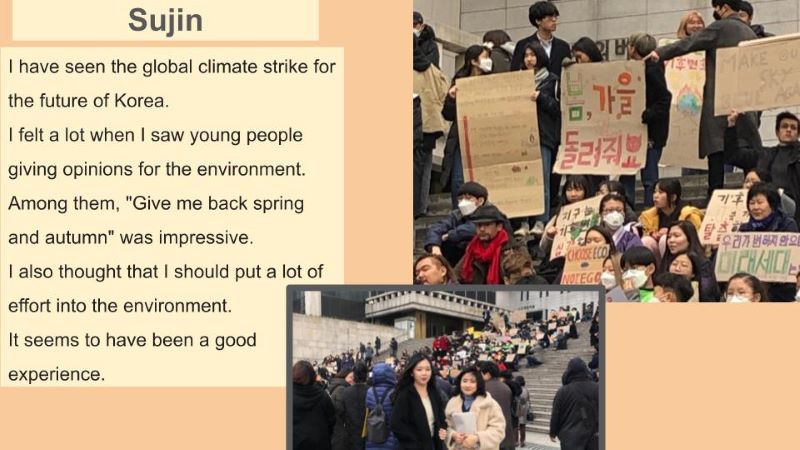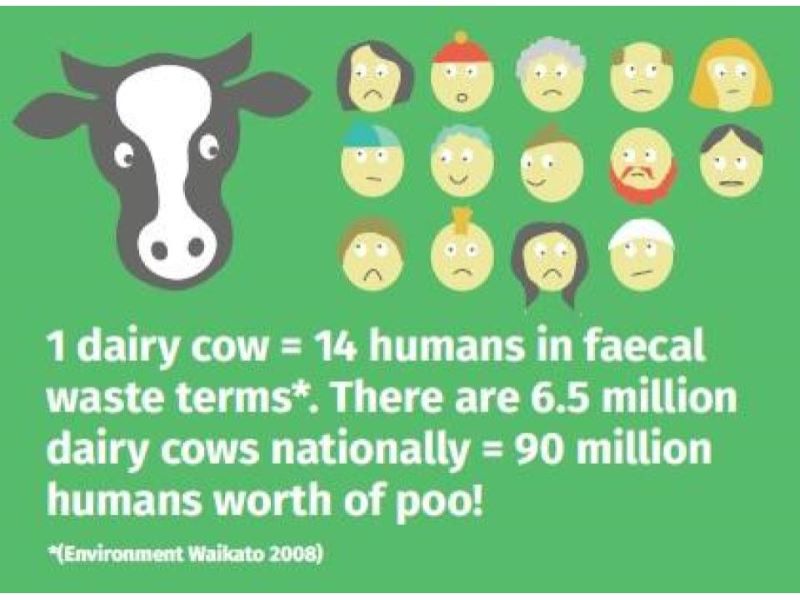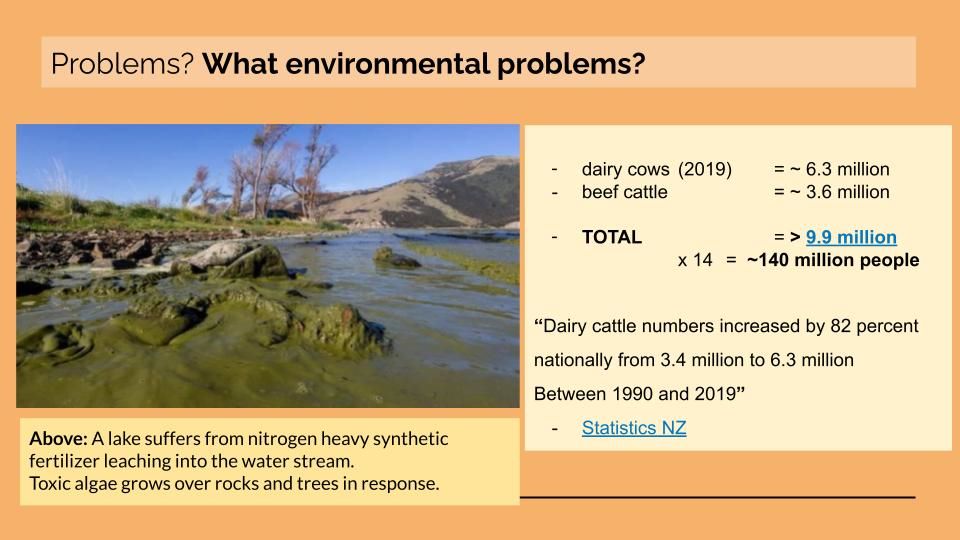Changes: Cigarettes, Cars, and Cows
By Julian Warmington
“And these children that you spit on / As they try to change their worlds
Are immune to your consultations / They’re quite aware of what they’re going through
Changes (Turn and face the strange) / Changes, don’t tell them to grow up and out of it
Changes (Turn and face the strange) / Changes, where’s your shame?
You’ve left us up to our necks in it”
– David Bowie, “Changes,” verse two and chorus, from the album Hunky Dory, 1971
Can people choose to change?
Some folks don’t think so.
How have you changed over the last decade or two? We’re not talking about accidental or natural change in terms of simply growing up, or suddenly realizing you’re not as young as a decade ago, but rather: How have you consciously decided to live differently for the sake of a better lifestyle?
Society is made up of a collection of individuals. If individuals can choose to change, perhaps societies can also decide to change for the better.
Students from all over the world, from Santiago, Chile, to Seoul, have marched streets demanding immediate climate action. They want societal change on an industrial scale, in ways that reduce industrially produced climate pollution.

Cigarettes
In the year 2000, smoking was an accepted norm in bars in South Korea and pretty much anywhere inside, for men, at least.
I would come home from an evening writing emails or reading online at the PC bang (internet café) down the road in Yang-dong, and followed the same routine as if I’d just been to the bar: I would put all my clothes immediately into the washing machine. I didn’t smoke, but because of the number of young men there who did, my jeans and shirts would be heavy with the stink of cigarette smoke.
I asked a young Kiwi at a bar one evening whether she thought the 1990 law changes to smoking in public in Aotearoa New Zealand had been a good idea. Emphatically, she said those changes to law weren’t good, because she had lost her freedom to smoke wherever she wanted.
I asked her what she thought or felt about the impact of her smoking on others around her who wanted to share the same space as her but not breathe second-hand cigarette smoke. She said it wasn’t her problem.
But eventually, culture followed policy change: Smokers in New Zealand now fully accept the need to keep their habit right away from non-smokers. That legal change was the result of informed, responsible, caring leadership, making the effort to lead a shift in thinking.
In South Korea, change in awareness about smoking around others, especially inside, arrived a little later. Both South Koreans and New Zealanders are now more considerate about the rights of non-smokers to breathe clean air, free of second-hand tobacco smoke.
Cars
Hyundai / Kia / Genesis group make some of the best electric cars in the world. I’ve driven the pure electric Genesis GV60, and it really was totally fantastic. It’s by far the best car I’ve ever driven. Just yesterday a friend was gushing about driving an early model Hyundai Ioniq, while others have raved to me about their Niro or Kona.
But Californians were saying exactly the same things about General Motors’ EV1 in the late 1990s. Those pure electric cars were so wildly popular instead of selling them to lease holders, GM took them back them and crushed them in compactors.
GM feared the advent of the pure electric car because it demanded retooling of their factories, re-inventing the wheel of in-house design and manufacturing systems which they already had set up for gas powered cars. It meant professional re-education or replacing engineers, and the end of sales revenue from spare parts that gas cars need more than the simpler yet more efficient pure electric cars.
GM even tried to kill demand and interest in leasing or buying the EV1. They did this by running negative advertising campaigns featuring, for example, the scene of a single, lonely, isolated car driving across barren countryside under dark gloomy skies.
This important, extraordinary chapter in the 2006 documentary Who Killed the Electric Car? illustrates the hunger that already existed and persisted for really good pure electric cars, despite lack of promotion, supply, and even deliberately off tone advertising, too.
In other words, it’s not just stroppy, hormonal teenagers marching in the streets that are hungry for meaningful structural change for the better.
And, this is also further proof that we cannot trust nor expect unregulated corporations to do the right thing for us, for our children, and for their future. Corporations need regulation.

Cows
The streams and rivers of New Zealand used to be 100-percent pure. We camped beside them when river kayaking and rafting when I was in university. We would simply dip cupped hands into the water and drink fresh, clean water whenever we were thirsty, and cook dinner in pots of water scooped straight from the river bank or water’s edge. That was barely three decades ago.
But in 1991, a new law removed regulations overseeing the dairy industry, ending restrictions on numbers of cows per hectare, or on each square block of land.
Over the next decade or two, more and more trees were chopped down and land converted to dairy farms. Those farms had ever more force-bred cows crammed side-by-side into muddy fields.
Now, even dogs with astoundingly strong stomachs die from drinking heavily polluted lake water downstream from dairy farms. Streams and rivers are so badly polluted swimming in them is forbidden due to the health hazard.
What caused this sudden shocking destruction of previously pristine countryside? To grow enough grass to feed all those cows, farmers spread around nitrogen-heavy fertilizer to help the grass grow faster.
When it rains, that nitrogen leaches into streams and rivers, killing native freshwater fish and eels, and human babies turn blue and die from drinking contaminated tap water.
But an even worse problem is the truly huge amounts of methane produced by cows. Methane is probably the very worst greenhouse gas.
Why talk about New Zealand’s dairy cow problems in these pages about Gwangju and Jeollanam-do?
South Korea recently started converting perfectly devoloped, productive ancient rice fields to modern high-rise apartments in some places, and milking sheds and cow barns in others.
As Gwangju News’ editor, William Urbanski, pointed out in a recent column, building ever more high-rise apartment blocks is foll . I agree, especially due to the carbon dioxide pollution created by all that concrete.
But poohs and wees from one cow is the same as the pollution created by about 14 humans. One cow shed hidden in the countryside is like a whole apartment block of families, but without the sewage treatment system.
How is all that effluent dealt with in South Korea? Are Korean cows trained to sit on toilets? Or does all that liquid crap get washed into local waterways to poison the remnants of wildlife, eventually getting back into urban water supplies?
An even more urgent question for us in Gwangju is: If New Zealand can make such a mess of its land, water, and air, and take three decades before even starting to consider the situation, how quickly can South Korea learn from that Kiwi disaster and halt our journey down this wrong way street of history?

Conclusion
If South Korea and New Zealand can change for the worse, we can also consciously decide to change for the better. Both countries hugely reduced smoking and saw the recent rise of pure electric cars zipping cleanly, silently down out streets.
But both nations have also made massive messes of our natural ecology. The time for indulging any industry making industrial greenhouse gas pollution is over.
Corporations will pay public relations reps to lie about loss of “freedom,” but they’re talking in code about their sense of entitlement to pollute the air we breathe and water we drink. They’ve been privatizing profits while socializing costs such as pollution, simply saying it’s not their problem.
The latest Intergovernmental Panel on Climate Change report explains just how desperate our situation is right now due to such industrial scale pollution. The Jeolla-do drought that only just ended proves this. Auckland, the largest city in New Zealand, has had a state of emergency declared three times already this year due to floods.
Later this year, New Zealand space agency Rocket Lab is due to launch MethaneSAT, a methane-tracking satellite system that can trace real-time emissions from leaky oil or gas wells and dirty dairy farms alike.
Such tech tools are nice to have. But what we need is to use methods we know worked for reducing cigarette smoking, and apply them to cancer causing dirty dairy and meat products: End advertising and keep increasing prices via taxes every year over a decade or so, as long as it takes to reduce and end that industry.
Perhaps then we can say we are respecting younger and future generations – of all species – instead of spitting on them while indulging our industrial-strength addictions.
The Author
Julian Warmington taught for twenty years at the university level in South Korea, half of which he spent in Gwangju. He established the Busan Climate Action Film Festival, presented internationally on teaching environmental issues in ESL, and misses traditional Korean water-based ice pudbingsu in summer.







